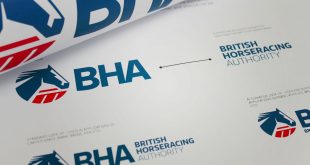Regulus Partners, the strategic consultancy focused on international gambling and related industries, takes a look at some key developments for the gambling industry in its ‘Winning Post’ column.
UK: Regulation – Talking About Their Generation; The Kids Aren’t All Right
Another week, another shoeing for Britain’s beleaguered gambling industry as fresh outrage arrived in the shape of the Gambling Commission’s annual report on youth gambling. The Ipsos MORI survey of 2,000-or-so schoolchildren found that the long-term decline in gambling participation by 11-year-olds to 16-year-olds continued into another year. A significant chunk of youth gambling remains entirely legal and legitimate private betting (e.g. between friends) but within commercial gambling, slots and online have held up as other forms have declined.
Unfortunately, the reported rate of problem gambling for this age group increased significantly year-on-year to 1.7%, prompting the gnashing of teeth and tearing of hair down on Fleet Street. Worse was to come as analysis of a new set of questions within the survey revealed that a high proportion of children claimed to have seen gambling adverts in the past week, that TV ads were the most commonly recalled (contradicting an oft-cited claim that the near-surgical attachment of our little darlings to their iPad and phones has stopped them watching TV) and that 7% claimed to have gambled as a result of seeing an ad.
A day later, Tombola fell foul of the Guardian in relation to its sponsorship of the popular (search me) TV show ‘I’m a Celebrity, Get Me Out of Here’ (and in particular the associated voting app). This was a bad week for those manning the defence of the industry’s advertising privileges – but was all the scorn justified?
The hoopla was in part caused by what might have appeared a relatively minor change in the survey – the inclusion of 16-year-olds. The original youth gambling surveys were the purview of the Lottery Commission and were thus primarily interested in the gambling behaviours of those below the legal age for lottery play. It also meant that the surveys dove-tailed neatly with intermittent household surveys (the British Gambling Prevalence Survey series and the Health Survey series) which only include those aged 16 years and older.
The youth survey’s adoption by the Gambling Commission (following the merger of the two regulators) has changed the focus of the report and warranted an expansion in the age banding. Indeed one could argue that (subject to practicalities) the report really should examine gambling by 17-year-olds as well. The change was entirely legitimate (and the Ipsos MORI appears to have adjusted prior year comparisons) but it did affect reporting – particularly on the matter of problem gambling (where the responses from two 16-year-olds may have skewed overall results).
The authors of the report repeatedly emphasise that the findings should be taken with a pinch of salt, stating that “small base sizes mean that these findings should be viewed with caution” and that “the differences in the problem gambling rates in 2018 can largely be attributed to a greater number of respondents qualifying for the screening questions than in previous years.”
Yet if the Gambling Commission has been entirely scrupulous in presenting the facts in a measured and responsible fashion, others (some of whom should know better) have been less so. Those declaiming on the youth gambling “epidemic” may feel that hyperbole is justified in order to bring attention to an important issue – but it doesn’t make them right and it risks their right to be taken seriously within the public policy debate.
Some in the industry have questioned the Commission’s apparent decision to offer the Daily Mail (not a title with a strong reputation for balanced reporting) an exclusive on the story. As much as there have been signs that the relationship between the regulator and its licensees is improving, this was a reminder that there is still a long way to go.
Operators may feel a bit hard done by after another week of indiscriminate reporting and facile commentary; but this is no time for self-pity. It serves the industry no good to nickel and dime over how many children really are problem gamblers (and what that even means) as there is no good number north of zero. The latest youth survey poses a number of challenges for licensees – particularly remote operators – and these require positive responses.
UK: In Parliament – Hi Bingo Silver Lining
There is no rest for the wicked, or so they say; but the Parliamentary forces of piety keep pretty busy too – as this week in Westminster proved once more.
Tuesday had originally been set as High Noon for the Government’s gambling policy – a Finance Bill amendment debate on the wisdom of deferring implementation of stake reduction on FOBTs. Last week’s climb-down ought to have made the debate redundant – but it is a shame to let a good crisis go to waste, even once it has been averted. Thus it was that former Conservative Party Leader, Iain Duncan Smith (Cons, Chingford & Wood Green) led a cross-party cabal of indignant MPs in lamenting the influence of gambling in Great Britain today.
A wide range of regulatory issues was exposed to scrutiny during the course of the debate – TV advertising and industry marketing; gambling on credit; betting shop clustering; the inadequacy of funding for research, education and treatment (and thus the need for a levy); dormant account fees; and pernicious industry lobbying. Few MPs could resist sticking the boot into the mortally stricken corpse of the FOBT – although Members from Northern Ireland will have considered that they had good reason given the likelihood that their constituencies would be among the last redoubts of the £100 a spin high street machine (an anomaly that poses a test of the betting industry’s newly minted conscientiousness).
Veteran anti-FOBT warrior, Ronnie Cowan (SNP, Inverclyde) provided a particularly vivid view of the industry’s place in society, saying: “Our TVs are haunted by advertising aimed at the most vulnerable. We even have products aimed at grooming children to be the next generation of gamblers. The gambling industry has to ask itself some very serious questions about its marketing strategy.”
There was much talk of the human costs of problem gambling – suicide was mentioned by several Members. The erstwhile minister, Tracey Crouch (Cons, Chatham & Aylesford) called attention to the anniversary later in the week of the death of 24-year-old Jack Ritchie, who took his own life, seemingly in connection with his gambling.
Jim Shannon (DUP, Strangford) attempted to paint a broader canvas on this point, saying: “The one thing that sits in my mind is this: why was it important to have those six months slip back from October to April? It is very simple: as has been said, 300 lives—maybe more—were saved. That is a fact.”
It is of course not a fact – unless of course one’s conception of a “fact” is a baseless assertion made with such regularity and conviction that none dare oppose it. These are dark days indeed.
Incidentally, the Culture Select Committee will next week debate “disinformation and fake news”. We doubt the latest ‘alternative facts’ about the volume of gambling-related suicides (which does a disservice to a very serious issue, in our view) will get a mention, despite now being apparently accepted by a number of MPs.
Clive Lewis (Lab, Norwich South) was one of the participants in the debate. He had the opportunity to reprise his anti-gambling rhetoric on Thursday’s night’s Question Time programme on BBC1. In response to a question from the audience on the remuneration of bet365 co-founder and CEO, Denise Coates, Lewis told viewers that “the modern gambling industry preys on people’s vulnerabilities”.
Interestingly, most of the Question Time panellists defended Ms Coates. Trevor Philips even seemed to indicate that because much of the firm’s revenue originated in Asia, it should not be blamed too much for problem gambling in Britain – a rather bizarre comment from the former chair of the Equality and Human Rights Commission.
Elsewhere, the Conservative Party peer and voice of gambling concern in the upper chamber, Lord Chadlington popped a brace of PQs in the post, asking the DCMS what effect an advertising ban would have on rates of problem gambling (the best answer that we can guess at from the available research is “relatively modest”); and quizzing the Department of Health about the cost to the NHS from problem gambling over the last five years. Meanwhile, Jared O’Mara, the Independent Member for Sheffield Hallam became the 37thMP to sign Early Day Motion 1351 which “urges the Government to introduce measures to end all televised gambling advertising before 9pm”.We suspect many others will follow.
Horseracing Levy reform, or more accurately its process, received a grilling in the joint houses Regulatory Reform committees, with Labour claiming a ‘major government defeat’on the issue. What really seems to be at issue is the fact that the changes have to some extent evaded parliamentary scrutiny in form (via an order rather than primary legislation; although there has been plenty of consultation and debate) and that the (very) new minister, Mims Davies was not sufficiently prepared to give a convincing performance. While there are some interesting governance questions that could be raised in terms of the substance of how the Racing Authority will work (see WPs and blogs passim), these do not appear to have come up. What proved momentarily interesting in the Westminster Bubble is unlikely therefore to have any real impact, in our view.
It is of course rare that this column brings much in the way of good news (the result of a severely challenging environment for gambling along combined with our curmudgeonly demeanour). There was however, a silver lining this week at the Parliamentary reception for the Variety Club of Great Britain, organised by The Bingo Association.
Here was the gambling industry at its best, celebrating a contribution of £1.3m to the children’s charity. MPs seemed delighted to be there (and to be playing without shame in a charity bingo game), meeting bingo club customers and employees in the secure knowledge that no-one was likely to bend their ears on gambling policy. Significantly, one of the politicians in attendance was the Honourable Member for Eastleigh in Hampshire (home to Leo’s Bingo), the new sports (and gambling) minister, Mims Davies. Here perhaps was a glimpse of a better future for the gambling industry if it can eschew spin and find positive ways to connect with society once more.
UK/global: Transparency in gambling – an ‘obscene’ reaction?
We do not normally publicly comment on corporate remuneration or individual companies beyond strategic, operational and financial matters. However, the pay of bet365’s co-founder has become so newsworthy in the UK that it has become a public-press-political talking point, potentially with broader implications. We also believe that most of the commentary has been ill-informed (at best). We therefore feel it appropriate to give our view.
There seems to be three key charges levelled at bet365 and Ms Coates: the pay amount is ‘obscene’; the company isn’t very transparent about where it generates its money, and; the business (is in an industry which) exploits people (topically minors) / isn’t very ethical. We will address each in turn, but we would also add that the fact that one of Britain’s most successful companies was co-founded and is being led by a woman of limited privilege (other than rather handily inheriting some betting shops) should not be overlooked.
First, on the matter of pay. Ms Coates is a co-founder and majority shareholder as well as a co-CEO: not ‘only’ an employee. There are therefore four ways in which she can get money out: pay herself out of payroll (salaries, bonuses etc); pay herself a dividend; sell the company; create a bunch of opaque connected services/operating companies where value extraction is easier (not an option by any means limited to online gambling, but the supply chain does lend itself to this approach). There is absolutely no evidence of the fourth option, with strong evidence of full consolidation into the group (see point two); equally, the fact that the Coates family has not opted for option three is a big reason why there are over 4,000 employees, the majority of whom are in the UK, and that the business keeps going from strength-to-strength: a level of long-term commitment much of UK-plc (and certainly rent-a-director professional meeting participants) notoriously often lack. The Coates family can and does take dividends, taxed in the UK at 38.1% (additional rate); the fact that Ms Coates also chooses the payroll option for a significant amount, where the government gets nearly half of the remuneration award (about the annual running costs of an entire hospital) is an odd thing to criticise…
Second, bet365 is a global company. It has no requirement to inform joe public where it makes its money, but it does have to tell the GB Gambling Commission, and legally justify it, for all country revenue above 3%. It would be very easy for bet365 to become less transparent by moving its topco to a less public and much lower (no) tax jurisdiction – just like practically every other digital business. The fact that bet365 has not taken this approach means not only that a lot of employment is created in the UK, but also HMRC is richer to the tune of c. £300-400m (possibly more) across all UK-related taxes (vs. c. £100m in remote gambling taxes alone: the equivalent for most GB licensees). bet365 is therefore subject to levels of transparency and scrutiny significantly higher than most digital businesses – and while people will always demand more, they should probably consider the cost of getting less if bet365 were to become more ‘normal’…
Finally, the issue of ethics is both thorny and subjective. People have an absolute right to decry gambling in general, and the consensus view is certainly that advertising has got out of hand – an issue bet365 has certainly had a material role in. However, linking not liking gambling to the success of a business; or linking questions over general business practices to the behaviours of one company (without any evidence of specific wrong-doing) seems gratuitous to us (indeed, bet365 invests more in responsible gambling – including sharing learnings – as well as social – good than the vast majority of commercial gambling companies – including over £250m in charitable donations since inception). Some people might not like gambling; some people might think it is too visible; some people might simply have an aversion to Ray Winstone…(although bonuses are not advertised and a responsible gambling sign-off has been added for over four years). However, bet365 is one of the UK’s strongest intangible export stories, it is a significant employer, and is run without much consideration to hiding
revenue or avoiding/evading tax – that is something to celebrate, in our view.
Japan: horseracing – su’she’ allowance
The Japanese Racing Authority has followed France Galop’s lead, by introducing a 2kg weight allowance for female jockeys in an attempt to enhance their opportunities and success. In France, the result was a doubling of opportunities and a 165% increase in the number of winners recorded. Following review the weight allowance has since been decreased to 1.5kg for flat races.
Japan’s top female jockey, Nanako Fujita has ridden 25 winners from 540 rides this year (a winner every 21.6 rides), compared to the top jockey for 2018, Christophe Lemaire, who has ridden 193 winners from 707 rides (a winner every 3.6 rides) which suggests it is not just the quantity, but also quality of racehorse partners which women are potentially missing out on. While this weight allowance may go some way to address the usage of female riders in mainstream domestic racing – allowing riders to pick up more fees, the fact that it cannot be reciprocated within pattern races (the highest standard of race), could prove the allowance to be negative in the long term – as owners will always choose a high-profile jockey for a top race, which sadly precludes the majority of females and therefore prevents any real progress at higher levels.
US: sports rights – IMG enters the betting Arena
IMG has won a multi-year deal to distribute data and streaming rights for PGA Golf including the PGA Tour. This deal is a result of the new product IMG Arena, which puts the company in closer competition to companies such as PERFORM, Sportradar and Genius Sports than hitherto.
IMG has historically concentrated on high impact official rights with a largely media focus, where other providers have broadened more into churn product, especially where betting was also the focus. The growing portfolio of IMG may therefore make it a more significant data as well as AV supplier for the top end of betting operators, particularly if further large tournament/league contracts are won. Where historically it has lacked some of the key services required by clients and offered by competitors, particularly in terms of in-play betting offering, this deal combined with its strategic partnership with virtuals provider Leap Gaming strengthen its position as a betting partner. The overall result is therefore likely to add to both the complexity and cost of sports rights for betting, likely widening the divide between top tier and ‘other’ operators even further….
Brazil: online betting regulation – a real opportunity?
Brazil has taken a material step closer to legalising sportsbetting (online and retail), with provisional legislation passing the lower house this week. While scant on detail, a revised lottery bill also provides a betting fiscal framework for a 3% turnover tax and a 89% payout minimum for bookmakers. The tax rate therefore works out at 27% GGR or more, depending upon bookmaker generosity.
Brazil is a material and growing emerging online market for a number of operators (particularly GVC in terms of sportsbook among listed operators, through its 2009 acquisition of Betboo), though the market has been challenging to many operators because of the specific (or creative) nature of payments methods required to tap into the market. We estimate that the total market is worth c. US$780m in 2017, with above average growth characteristics. Landbased gambling is much more restricted (vide last year’s bun fight over IR casinos and online, albeit prior to a new president with a clearer mandate for change), with LatAm leaders Codere generating only c. €3m revenue (and losing €4m) mainly through horseracing (4 locations) and Cirsa merely hopeful.
The proposed fiscal framework looks attractive on averages, but has two key weaknesses, in our view. First, while 27% GGR equivalent tax looks acceptable on averages, the payout restriction undermines both in-play value and multiple flexibility: many books may average close (enough) to an 89% payout, but this is an outcome: very few actual products do, and this gives a huge potential advantage to the black market (the structure is likely to be kinder to retail, therefore potentially a benefit to Cirsa and Codere). Second, there is no mention of gaming, which constitutes over half the market (RP estimate) and is an important / growing jurisdiction not only for GVC but also for TSG (poker only), JPJ and others. If the law is strong enough to clarify a ban on gaming (question whether poker is gaming or not under Brazilian law), then the level of dislocation caused is likely to be far worse in the short/medium-term than the POC opportunity opened up (especially given the fiscal constraints). Exposed operators may therefore have some awkward compliance choices to make….
While the risk of change is real, in our view, it should not be overplayed. Brazil’s need for money is matched by significant bastions of cultural aversion to commercial gambling. The senate has only until the middle of next week to approve, after which a further series of fights over implementation can be expected even if the law is passed. Unfortunately (and mirroring a number of material markets), muddle and acrimony is probably safer than policy for much of the .com sector…
Global: M&A – Summary
– GVC Holdings has acquired Neds International in a deal with a potential value of £52m.
– Evolution Gaming is to acquire Ezugi at initial indications for US$12m.
– I-AM Capital has completed its acquisition of SMAASH Entertainment Private Limited. The company as a result has changed it name to SMAASH Entertainment inc.
– Zeal Network SE has made a bid to acquire Lotto24 AG, Zeal are hopeful the deal could complete in H119.









